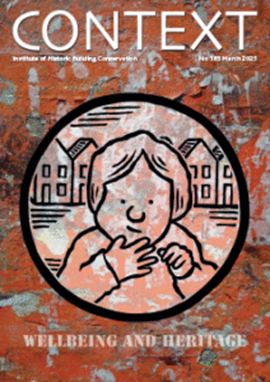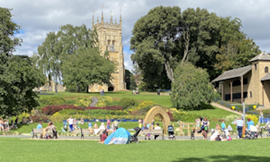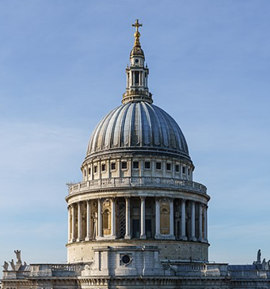IHBC Listed Buildings Prosecutions Database
The Institute of Historic Building Conservation (IHBC) Listed Buildings Prosecutions Database was created in 1996 to help establish the levels of activity across the UK prior to a high profile case eventually resulting in the successful prosecution of a Member of Parliament for unauthorised alterations to a listed building.
The data subsequently compiled by IHBC was essential background to the CLG Best Practice Guidance on Listed Building Prosecutions published in December 2006. It is the Institute’s position that the government’s withdrawal of the document as its formal policy guidance (as part of wider reduction of advice and guidance) does not in any way invalidate the content and it remains an invaluable source to which members of the Institute are encouraged to continue to refer. Both the database and the good practice guidance further the Secretary of State’s long-standing policy in Planning Policy Guidance Note 15 (Planning and the Historic Environment - superseded in 2010 by Planning Policy Statement 5: Planning and the Historic Environment) to encourage prosecution where a good case can be made.
Updates will be made as new cases are notified to the Institute (contact details below). IHBC continues to rely on volunteered information from heritage and enforcement professionals and page 41 of the CLG good practice guidance also encourages the submission of data. Cases include not only unauthorised alterations and demolitions to listed buildings but also unauthorised demolitions of unlisted buildings in conservation areas.
Notification of further cases is constantly sought (irrespective of the success of the outcome). Please forward details of cases especially if you have not done so before. This will help to maintain the usefulness of the Database and be a cross-reference for the effectiveness of the legislation and policy guidance.
Details of new cases would be very welcome and should be sent to ihbc.org.uk government@ihbc.org.uk preferably in broadly the format in the main Table: size of fine; costs awarded; the nature of the offence; address; grade of building; type of court (Magistrates or Crown); any other information which would be informative (e.g. a guilty plea or observations by the court).
--Institute of Historic Building Conservation 05:46, 18 Jun 2016 (BST)
Related articles on Designing Buildings Wiki
- Appeals against urgent works notices.
- Building Preservation Notice.
- Cautions or formal warnings in relation to potential listed building offences in England and Wales.
- Certificate of immunity.
- Charging for Listed Building Consent pre-application advice.
- Data sought for IHBC listed buildings prosecutions database.
- Ecclesiastical exemption.
- Enterprise and Regulatory Reform Act 2013 and listed buildings.
- Forced entry to listed buildings.
- Institute of Historic Building Conservation.
- Listed buildings.
- Listed Building Heritage Partnership Agreements.
- Local Listed Building Consent Orders.
- Listed Building Consent Order.
- Planning authority duty to provide specialist conservation advice.
- Tax Relief for Heritage: Lessons from abroad.
- Use of direct action in heritage enforcement cases in England.
IHBC NewsBlog
IHBC Context 183 Wellbeing and Heritage published
The issue explores issues at the intersection of heritage and wellbeing.
SAVE celebrates 50 years of campaigning 1975-2025
SAVE Britain’s Heritage has announced events across the country to celebrate bringing new life to remarkable buildings.
IHBC Annual School 2025 - Shrewsbury 12-14 June
Themed Heritage in Context – Value: Plan: Change, join in-person or online.
200th Anniversary Celebration of the Modern Railway Planned
The Stockton & Darlington Railway opened on September 27, 1825.
Competence Framework Launched for Sustainability in the Built Environment
The Construction Industry Council (CIC) and the Edge have jointly published the framework.
Historic England Launches Wellbeing Strategy for Heritage
Whether through visiting, volunteering, learning or creative practice, engaging with heritage can strengthen confidence, resilience, hope and social connections.
National Trust for Canada’s Review of 2024
Great Saves & Worst Losses Highlighted
IHBC's SelfStarter Website Undergoes Refresh
New updates and resources for emerging conservation professionals.
‘Behind the Scenes’ podcast on St. Pauls Cathedral Published
Experience the inside track on one of the world’s best known places of worship and visitor attractions.
National Audit Office (NAO) says Government building maintenance backlog is at least £49 billion
The public spending watchdog will need to consider the best way to manage its assets to bring property condition to a satisfactory level.
















